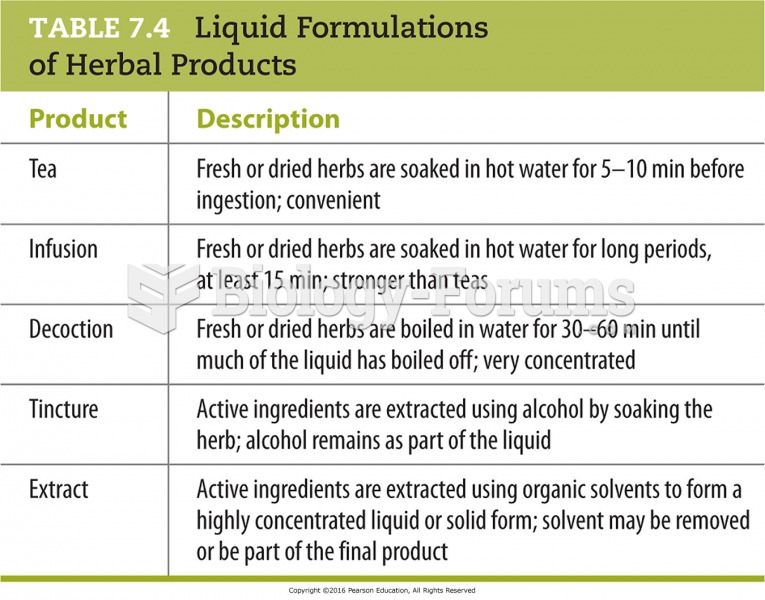|
|
|
Carbamazepine can interfere with the results of home pregnancy tests. If you are taking carbamazepine, do not try to test for pregnancy at home.
IgA antibodies protect body surfaces exposed to outside foreign substances. IgG antibodies are found in all body fluids. IgM antibodies are the first type of antibody made in response to an infection. IgE antibody levels are often high in people with allergies. IgD antibodies are found in tissues lining the abdomen and chest.
Medications that are definitely not safe to take when breastfeeding include radioactive drugs, antimetabolites, some cancer (chemotherapy) agents, bromocriptine, ergotamine, methotrexate, and cyclosporine.
Cytomegalovirus affects nearly the same amount of newborns every year as Down syndrome.
By definition, when a medication is administered intravenously, its bioavailability is 100%.
 Angioplasty. One form is called balloon angioplasty, shown here. A balloon catheter is threaded into
Angioplasty. One form is called balloon angioplasty, shown here. A balloon catheter is threaded into
 Diphtheria. The bacteria that cause this disease, called Corynebacterium diphtheriae, proliferate in
Diphtheria. The bacteria that cause this disease, called Corynebacterium diphtheriae, proliferate in





